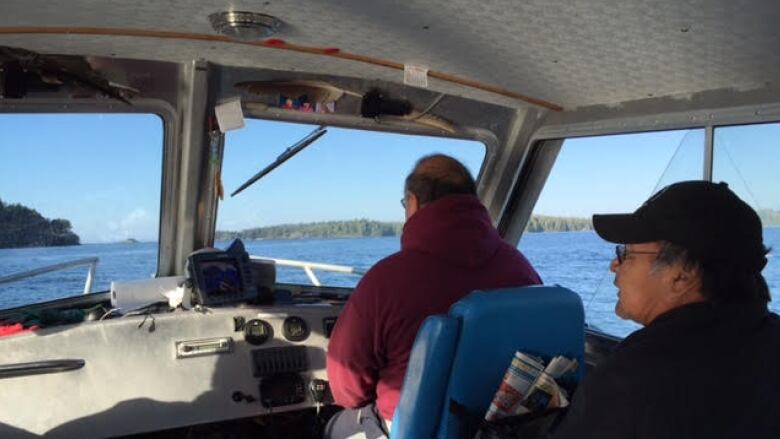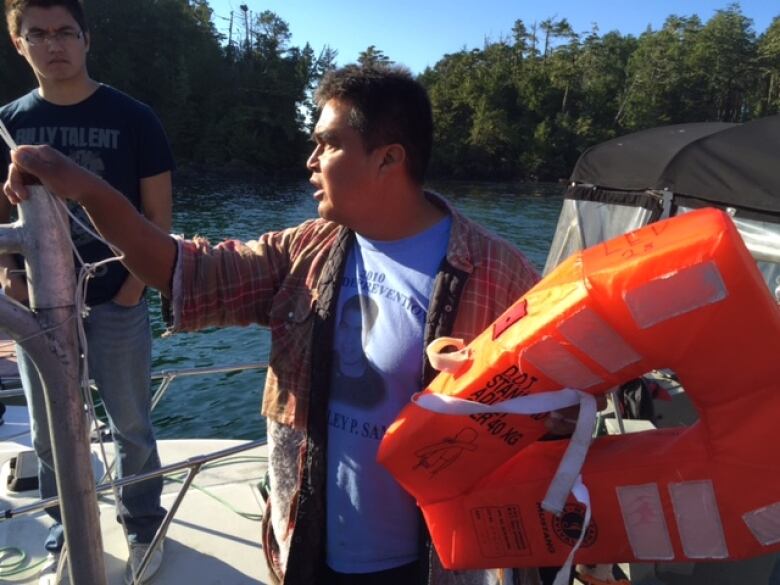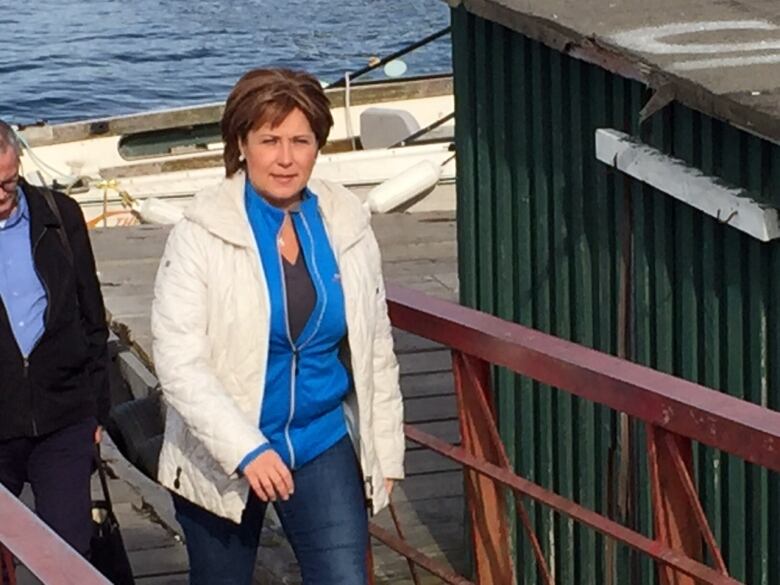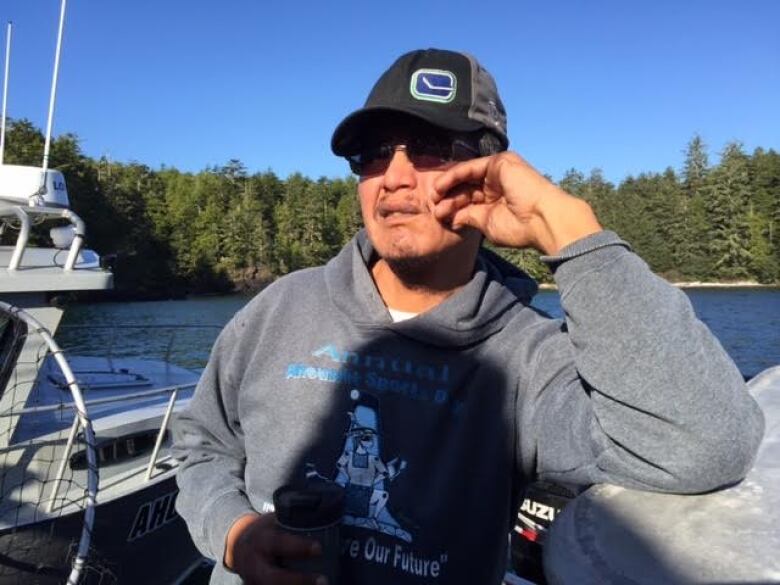First Nations demand more search and rescue support
First Nations members were first on the scene to rescue the 21 survivors

First Nations on the west coast of Vancouver Island are calling for more search and rescue training for their communities following Sunday's whale-watching tragedy that claimed the lives of at least five people.
One person is still missing after the MV Leviathan II capsized near Tofino, tossing 27 passengers and crew into the water.
First Nations members from two local communities were first on the scene and pulled most of the survivors and victims from the water and transported them to Tofino for emergency care.

Debra Foxcroft, the president of the Nuu-chah-nulth Tribal Council, says their quick response was critical in saving many lives.
"Coast guard weren't on the scene for at least 45 minutes, and by that time everybody that was involved was rescued or they were already on their way to the hospital," said Foxcroft.
Timeline disputed
The Canadian Coast Guard disputes that claim, saying its first Zodiac was dispatched less than four minutes after the first radio call was picked up by the Tofino Station, and arrived at the scene 15 minutes later.
Nevertheless Foxcroft says other First Nations communities need help setting up similar programs in other parts of the coast.
"We are fortunate that the Ahousaht First Nation already had a coordinated communication approach for their community."
"Luckily there has been significant training in that community, but in other communities there is a need for training, support, supplies and equipment.
"Our coastal people need to be recognized as first responders, because they are on the water. They have been trained. They have grown up on the water. They know those areas."
When the BC Ferries vessel Queen of the North ran aground and sank in 2006, with the loss of two lives, it was also first First Nations members of the nearby community of Hartley Bay that were first on the scene to rescue the 99 survivors.
Promises lack details
On Tuesday Premier Christy Clark promised Minister of State for Emergency Response Naomi Yamamoto would be offering more support for search and rescue teams in Coastal First Nations, but did not release any specific details.

Clark repeated the promise on Wednesday in the Legislature in Victoria, adding only that she was asking the federal government, which is responsible for the coast guard, to also get involved.
"Today I'm calling on the federal government to ensure that First Nations are more formally integrated into coast guard response for sea rescue and other kinds of immediate responses required all up and down our coast. They know it better than anybody else, and they should be part of that response.
Clark also highlighted the need to improve cell service in the region on Wednesday.
More training and equipment needed
Foxcroft also raised concerns about the radio communication between the First Nations rescuers and the coast guard and called for a coordinated effort to increase the number of SAR-trained boaters and shore-based VHF radio operators.
"There needs to be a coordinated approach and communication is critical."
Foxcroft said ideally, each community would have the appropriate rescue and first aid equipment ready for immediate deployment, including emergency warming blankets, night-vision goggles and defibrillators, she said. Larger vessels could be equipped with forward-looking infrared (FLIR) devices that allow searchers to locate survivors even in extreme conditions.
She would also like to see a more coordinated approach to trauma counselling for rescuers.

"There also needs to be some support for the aftermath. The people that were rescuing they have had trauma and we need to recognize that."
She also called on prime minister-designate Justin Trudeau to "reverse a decade of decline in marine search and rescue ... and invest in life-saving equipment for First Nations communities."
In the meantime, she said the communities will continue to respond when there is an emergency on the water.
"They are volunteers and they do it because they care about people and not just our own communities. Everybody's life is important and significant and our people will always go out and help in any situation."












_(720p).jpg)


 OFFICIAL HD MUSIC VIDEO.jpg)
.jpg)



























































































